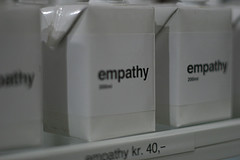... and where do you learn those things that you need to learn?
Good luck with this list from Stephen Downes. He gives us plenty to ponder.
... and where do you learn those things that you need to learn? Good luck with this list from Stephen Downes. He gives us plenty to ponder.
0 Comments
Needless to say, Race to Nowhere captured my attention. Katie really never had letter grades before. We did home school last year and I pulled her from the mess that was fourth grade where they weren't using letter grades yet. Enter Middle School where they have something called the Parent Portal and you can see how you are doing day-by-day. Test by test. Let the addiction begin.
I had been slightly worried she was so obsessed with her grades, but I also shared her excitement as she was able to study more and get better grades. For the last four weeks, she's been getting 100 on everything which, bytheway, they addictively call an A+ - which is simply non-sense, it's an A. But this adds a kick to the high doesn't it?! So I confronted Katie about her addiction ..... Read the full post and then think about grades in your world! Do you have a student who is addicted to their grades? Do you have a child who is addicted to their grades? Do you have a teacher who is addicted to their grades? Interesting point of view and topic for some thought! Where do you feel grades fit into a person's learning?  I have been reading and rereading this post by Danah Boyd at the same time that I am working with students on creating a presentation for the school about "Bullying" and the components of bullying. It has raised many questions for me about where we are going with our school's work on this and what other things might we be thinking about as we work with our school community on these issues.
I understand that Danah's subjects might be older kids but from my perspective some of our population is at the level that she illustrates. I felt that much of what she has to say has relevance with our middle school students. I like her focus on the importance of empathy. The ability to imagine oneself as another person is a sophisticated process and it is this that might make sense to begin to work on if possible. We, both students and adults, could use some practice at trying to understand and be able to see the other side of an issue. At the very least we need to learn or practice approaching an issue from many different perspectives. To be able to to this is not easy and maybe not developmentally appropriate for all but for the rest of us we could us some practice. As Danah also points out what children and adults subject themselves to with their consumption of media has such a detrimental effect on trying to learn empathy. How can one be expected to seriously think about the other side of a position, or how another person might feel with the present day's media portral of relationships. And we wonder why our society is not the one that we remember. The following excerpt and specifically the final sentence are where we might make a difference on this matter. Create and establish the environment for the change we want to see. "Combating bullying is not going to be easy, but it’s definitely not going to happen if we don’t dive deep in the mess that underpins it and surrounds it. Lectures by uncool old people like me aren’t going to make teens who are engaged in dramas think twice about what they’re doing. And, for that matter, using the term “bullying” is also not going to help at all either. We need interventions that focus on building empathy, identifying escalation, and techniques for stopping the cycles of abuse. We need to create environments where young people don’t get validated for negative attention and where they don’t see relationship drama as part of normal adult life." What is your reaction to Danah's post ? cc photo: pierre phaneuf Don't know about you but my math class could use a "make over" and Dan Meyer certainly gives me plenty to think about and to work with in this presentation. I have followed Dan for a few years and have enjoyed his work from a distance but with this presentation his work seems more accessible to me. There are many things that I can get hung up on in my teaching but Dan keeps this focused and very real for me as I look to "make over" my math experience. Dan has been a leader for me to watch as he has made much of his experiences available online. His use of visual pictures and video is outstanding and allow me to see possibilities for my teaching experience. Here is a link to the page of his presentation and lots of other related links. He also has a great TED Talk about this idea as well. |